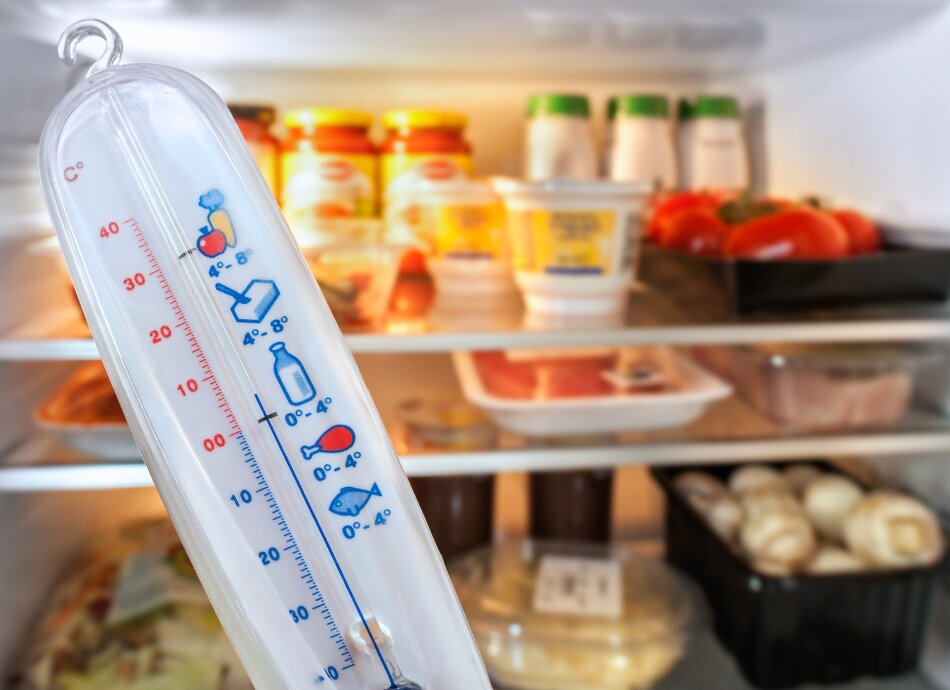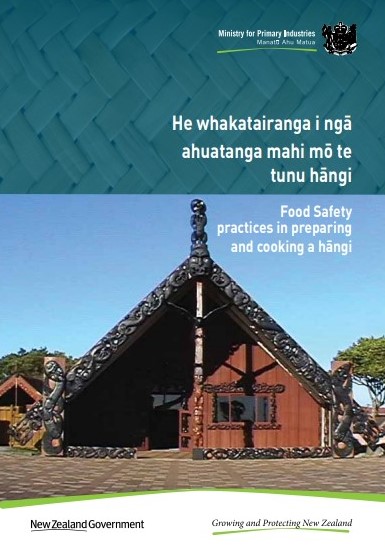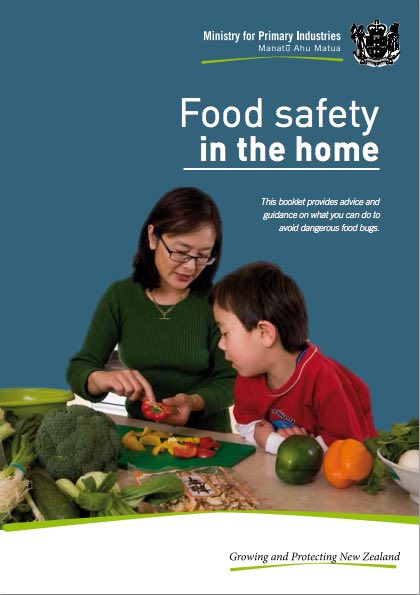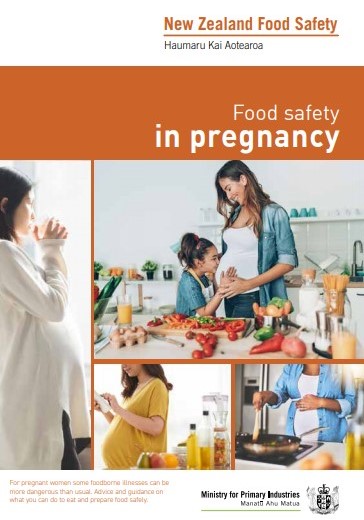Food safety is about making sure that food is safe to eat and does not make people sick. It generally describes ways of handling, preparing and storing foods that prevent foodborne illness.
Low or no data? Visit zero.govt.nz, scroll down the page then click on our logo to return to our site and browse for free.
Food safety
Key points about food safety
- Food safety is about making sure that food is safe to eat and doesn't make people sick.
- It generally describes ways of handling, preparing and storing foods that prevent foodborne illness.
- Foodborne illness, or food poisoning, occurs when you become ill from eating contaminated foods.
- Most foodborne illness is preventable.

Micro-organisms (bugs) that cause illness are called pathogens. These pathogens can be bacteria, fungi, parasites or viruses. Foodborne illness is any illness that results from eating foods contaminated with pathogens or their toxins.
Some of the most common causes of foodborne illnesses in NZ include infections from norovirus, campylobacter, giardia, Clostridium difficile, shigella, salmonella and listeria.
Common causes of foodborne illness are:
- storing food for too long and at the wrong temperature
- cooking it at the wrong temperature (undercooking food and inadequately reheating cooked food)
- cross-contaminating ready-to-eat foods with raw foods
- using dirty surfaces to prepare food.
The most common health effects of foodborne illness are stomach cramps, vomiting (being sick) and/or diarrhoea (runny poos). Foodborne illness can also cause longer-term illness or even death.
You can prevent foodborne illness by buying, gathering, preparing, cooking and storing food in ways that keep it safe to eat.
When buying food and drink:
- always check the use-by date of each food before buying it
- avoid foods with damaged packaging – eg, dented or swollen tins, ripped packaging, broken seals
- choose undamaged and unripe (or just-ripe) fresh vegetables and fruit.
If gathering food:
- always wash food like pūhā and watercress thoroughly after gathering or buying from others who have gathered it
- before gathering shellfish or other seafood, check with the local regional council, public health unit and the ‘marine biotoxin alerts’ on the Ministry for Primary Industries website(external link) for information about any areas contaminated with algal blooms or other hazards.
When storing food:
- keep the fridge at or below 4 degrees Celsius
- store raw meat away from other food, eg, on the bottom shelf of the fridge so the raw meat juices do not drip on to other food
- follow storage advice on labels
- cover leftovers and store them in the fridge (within 2 hours of cooking) and use within 2 days of cooking.
When preparing and cooking food:
Clean (people, surfaces and food)
Before you prepare food and after handling raw food (like meat and fish):
- wash hands, chopping boards, dishes, and utensils (like knives) in hot, soapy water
- rinse, then dry them thoroughly
- protect cooked and ready-to-eat food from getting contaminated by dirty hands, dirty kitchen surfaces or raw foods, by keeping it in clean containers until needed.
Cook
- Cook food (especially chicken and mince) thoroughly all the way through until the juices run clear.
- Reheat food until it's steaming hot, to kill any germs.
Chill
- Cover food and put in the fridge.
- Keep cooked and raw food separate.
- Don't leave food out. Refrigerate food within 2 hours or bin it. If in doubt – throw it out.
Video: Food safety tips when cooking chicken at home
This video may take a few moments to load.
(Ministry for Primary Industries, NZ, 2021)
Video: Food safety tips when cooking eggs at home
This video may take a few moments to load.
(Ministry for Primary Industries, NZ, 2021)
When using water:
Making sure you have clean water for drinking and cooking is just as important as having clean and safe food.
If you are not on city or town water supplies and collect your water in tanks or source it from bores or waterways, there are some important steps to make sure the water is clean and safe to use.
Tank water may be collected from:
- rain off the roof
- natural water, eg, from streams or lakes
- a bore (a deep hole in the ground)
- a spring.
Water supplies from all these sources can very easily become unsafe:
- Roof water may be corrosive or may become contaminated with ash, dust, agricultural spraying or bird or possum droppings.
- River or stream water and shallow bore water and springs can become contaminated from many sources such as animals, algae, chemicals, or be discoloured and unpleasant to taste.
- Bore water can be hard and corrosive.
If you use any of these sources for your water, make sure you do regular checks of your water quality.
Video: Summer food safety tips
This video may take a few moments to load.
(Ministry for Primary Industries, NZ, 2019)
Don’t contaminate your plate this summer – be a Chicken Scene Investigator(external link) Ministry for Primary Industries, NZ
Food safety for consumers(external link) Ministry for Primary Industries, NZ
Preparing and storing food safely at home(external link) Ministry for Primary Industries, NZ
Is it safe to eat?(external link) Ministry for Primary Industries, NZ
Food safety when fishing and gathering shellfish(external link) Ministry for Primary Industries, NZ
Introduction to Food Science(external link) Future Learn Online paid course. 4 hours a week for 4 weeks This course is designed for anyone interested in food and looking for reliable information on how to make safer, healthier and more sustainable food choices.
Resources
UMU Pasifika – food safety for Pacific peoples(external link) Ministry for Primary Industries, NZ, 2014
Food Safety practices in preparing and cooking a hāngi(external link) Ministry for Primary Industries, NZ, 2013
Food safety in the home(external link) Ministry for Primary Industries, NZ, 2021
Food safety in pregnancy(external link) New Zealand Food Safety, 2020
Reference
- Eating and activity guidelines for NZ adults(external link) Ministry of Health, NZ, 2020
Brochures

Ministry for Primary Industries, NZ, 2013

Ministry for Primary Industries, NZ, 2021

New Zealand Food Safety, 2020
Credits: Healthify editorial team. Healthify is brought to you by Health Navigator Charitable Trust.
Page last updated:





